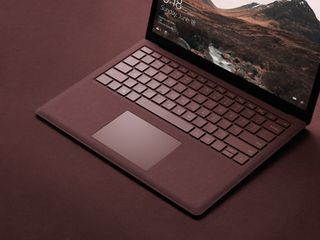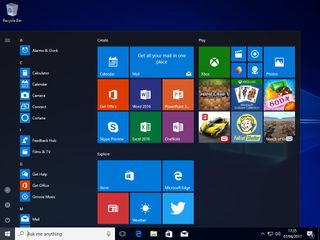Last time, Microsoft targeted Apple's creatives. Now, education.

Microsoft is holding an education event today, complete with a new version of Windows and a new Surface. Windows S is a simpler, more secure version aimed at students, while Surface Laptop is Microsoft's ultrabook for education.

Windows 10 S is Microsoft's newest edition of Windows 10, with one specific change over previous, "normal" editions of Windows 10. This new edition of Windows 10 is locked to the Windows Store for all your apps and games, meaning if you want to install apps on Windows 10 S, you can only do so if said apps are available in the Store to begin with.
Makes it sound almost like iOS, where you lose online sources for apps but gain the trust that comes from a single on-device storefront. Interestingly, if Windows S ever becomes a constraint, you'll be able to upgrade it to Windows Pro.
On Mac, you can get similar functionality by turning Gatekeeper all the way up, the adjusting it back down if/when needed.
The Surface Laptop appears to be built for higher-education students and professionals who don't need the form factor of a Surface Pro or Surface Book. Sporting a more typical laptop clamshell design, with multiple color options including Platinum, Burgundy, Cobalt Blue and Graphite Gold. It's a 13.5-inch PixelSense display, meaning this screen will look crisp and clear much like on any other Surface product.
The colors are fun, much like gold and rose gold on MacBook. The processors are Intel's Kaby Lake, which is more recent than Apple's last Skylake update, and core i5 rather than the more anemic coreM. (Which cry every time they see the Apple A9 in iPad Pro.)
The lowest end model starts at $999, which is 11-inch MacBook Air territory, though it sports a Retina-style display, which the Air does not.
Last time, we saw Microsoft take aim at Apple's traditional pro market with Windows Creative and the Surface Studio. Now Microsoft is taking aim not just at Apple in education, but Google and no-cost ChromeOS and low-cost Chrome Books as well.
As Apple has driven increasingly mainstream with iOS and the Mac, both pro and education have been stretched thinner and left to languish longer.
Master your iPhone in minutes
iMore offers spot-on advice and guidance from our team of experts, with decades of Apple device experience to lean on. Learn more with iMore!
Apple has already announced a new Mac Pro will be coming, but not this year. It remains to be seen when Kabylake updates for iMac, MacBook Pro, and MacBook — and anything for Mac mini — come our way.
It'll take more than just new chipsets to really recapture the hearts and minds, and budgets, of Apple's traditional niche markets, though. It'll take Apple figuring out a way to scale so it can meet the needs of its new mainstream market without leaving pros and education, among others, behind.
It's slightly more complicated for Apple, though. Unlike Microsoft, Apple has a flourishing mobile operating system, as well, in iOS. Plus, iPad did just get updated to a new, more-affordable-than-ever model and a partnership with Logitech to provide discount keyboards at volume for schools.
If handled wrong, that story becomes confusing. If handled right, though, iPad and Mac liberate each other to excel at opposite ends of the spectrum, and with some overlap in between.
If iOS 11 brings iPad forward the same way iOS 9 did, we might have part of our answer.
WWDC 2017 in June, which is often but not always a software-only affair, seems like the next opening for iOS and macOS devices both.
What will Apple do with it? And what would you want to see them do?

Rene Ritchie is one of the most respected Apple analysts in the business, reaching a combined audience of over 40 million readers a month. His YouTube channel, Vector, has over 90 thousand subscribers and 14 million views and his podcasts, including Debug, have been downloaded over 20 million times. He also regularly co-hosts MacBreak Weekly for the TWiT network and co-hosted CES Live! and Talk Mobile. Based in Montreal, Rene is a former director of product marketing, web developer, and graphic designer. He's authored several books and appeared on numerous television and radio segments to discuss Apple and the technology industry. When not working, he likes to cook, grapple, and spend time with his friends and family.